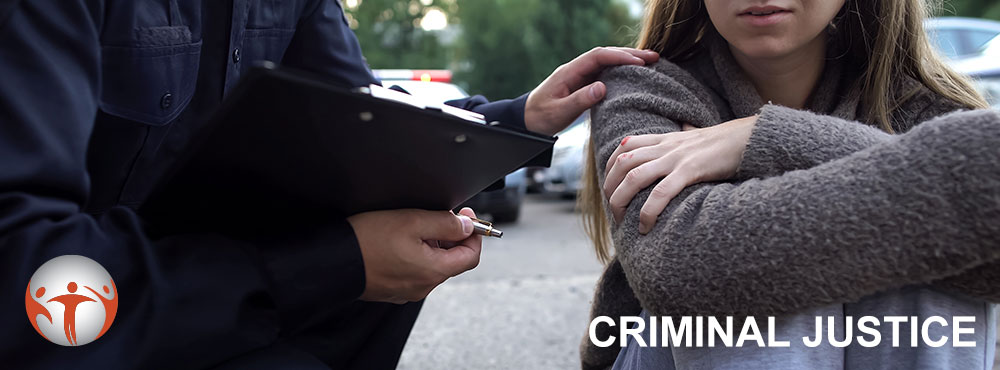Home > Resources Funded or Provided under the Substance Abuse and Mental Health Services Administration (SAMHSA)

The Substance Abuse and Mental Health Services Administration (SAMHSA) funds and supports over a dozen programs and initiatives that can assist those who work with justice-involved individuals who also have a mental health and/or substance use disorder. These resources, toolkits, trainings, and webpages promote early intervention and treatment as healthier alternatives to detainment, help identify treatment resources, locate housing assistance, and address integrated care, among other topics.
Adult Mental Health Treatment Court Locator
This resource identifies adult mental health treatment courts in every state. Of note is the limitations of resources in rural communities to serve criminal justice-involved persons with mental health disorders. For example, the service locator notes three of the states in Region 8 (North Dakota, South Dakota, and Wyoming) have no mental health courts. Montana has merely two in their more urban areas.
The Center of Excellence for Integrated Health Solutions
Addressing co-occurring disorders, this center provides on-demand tools and resources to assist providers in integrating care. Funded by SAMHSA and administered by the National Council for Behavioral Health, this center provides supports in integrating physical care with substance use and mental health disorders.
Criminal and Juvenile Justice
This SAMHSA webpage promotes early intervention and treatment as healthier alternatives to detaining people with behavioral health conditions and describes SAMHSA’s efforts to promote this wok.
Forensic Assertive Community Treatment (FACT)
FACT is a service delivery model intended for individuals with serious mental illness who are involved with the criminal justice system. These individuals may have co-occurring disorders. Their needs are often complex, and their disorders are often under-managed and further complicated by varying degrees of involvement with the criminal justice system. FACT builds on the evidence-based assertive community treatment model by making adaptations based on criminal justice issues.
GAINS Center for Behavioral Health and Justice Transformation
This program expands access to services for people with mental and/or substance use disorders who are in contact with the justice system. This center provides supports, including training and technical assistance, to providers of behavioral healthcare and justice providers.
The Homeless and Housing Resource Center
This resource center provides training and TA to grantees and the public on homelessness and housing concerns. This resource also provides assistance related to accessing housing.
Mental Health and Substance Abuse Service Locator
This resource can assist probation and parole officers and other behavioral health providers, as well as family members and patients/clients, on locating services in their community.
National Technical Assistance and Resource Centers
SAMHSA’s funded national technical assistance and resource centers provide supports to providers of behavioral health services including probation and parole personnel.
Recovery Housing: Best Practice and Suggested Guidelines
This SAMHSA resource provides a framework for best practices to support sober living. Sober living homes serve people who are at-risk of incarceration or who are re-entering communities following incarnation.
The Screening and Assessment of Co-Occurring Disorders in the Justice System
This SAMHSA product (June 2019) serves as a resource to address training needs on co-occurring disorders. Specifically, this monograph examines a wide range of evidence-based practices for screening and assessment of people in the justice system who have co-occurring mental and substance use disorders. Use of evidence-based approaches for screening and assessment are likely to result in more accurate matching of offenders to treatment services and more effective treatment and supervision outcomes. This monograph is intended as a guide for clinicians, case managers, program and systems administrators, community supervision staff, jail and prison booking and healthcare staff, law enforcement, court personnel, researchers, and others who are interested in developing and operating effective programs for justice-involved individuals who have co-occurring disorders. Key systemic and clinical challenges are discussed, as well as state-of-the art approaches for conducting screening and assessment.
The Serious Mental Illness (SMI) Adviser
The SMI Adviser is a clinical support system for serious mental illness. This resource provides education, data, and consultation to providers to assist in making evidence-based treatment decisions. The program offers a team of consultants to assist family members, friends, and persons with SMI to secure supports and responses to questions and can also assist probation and parole officers.
Tailoring Crisis Response and Pre-arrest Diversion Models for Rural Communities
This brief is the first of three Action Briefs developed from the SAMHSA Pre-arrest Diversion Expert Panel, convened in January 2018. Each brief addresses one of the three primary themes that emerged from the Expert Panel: (1) modifications of early diversion models for rural areas, covered here; (2) the role of hospital emergency departments; and, (3) information sharing.
Tribal Training and Technical Assistance Center
This center provides culturally responsive mental health promotion and substance use supports for Tribal Nations to address needs noted by probation and parole officers working in tribal communities.